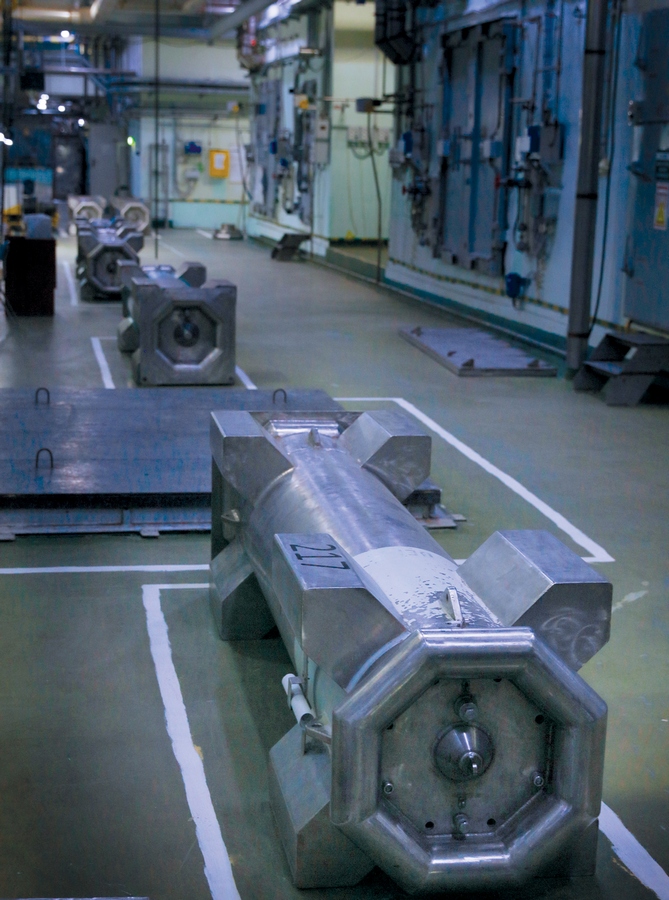 Specialists at Russia’s Mining & Chemical Combine (MCC – part of Rosatom) in Zheleznogorsk, Krasnoyarsk Territory, are installing and commissioning a plant for mechanical grinding of use fuel assemblies from VVER-1000 reactors. The facility will be launched by the end of 2023. MCC is also upgrading its fuel fabrication technology.
Specialists at Russia’s Mining & Chemical Combine (MCC – part of Rosatom) in Zheleznogorsk, Krasnoyarsk Territory, are installing and commissioning a plant for mechanical grinding of use fuel assemblies from VVER-1000 reactors. The facility will be launched by the end of 2023. MCC is also upgrading its fuel fabrication technology.
With respect to used fuel, the new GIT-1000 installation consists of three hermetically welded chambers for feeding, cutting and sorting assembly pieces. The cutting will take place in a sealed shell so that radioactive dust does not contaminate the equipment in the cutting canyon. The planned durability of the plant's knife block is 200,000 cuts, which corresponds to processing 2,000 used fuel assemblies.
A similar installation is already operating at production association Mayak in Ozersk, Chelyabinsk region. However, the GIT-1000 at MCC has significant differences. While Mayak deals with all kinds of used fuel assemblies, the MCC facility will deal only with standard fuel from VVER-1000 reactors. “GIT-1000 is more compact, its total metal consumption is 35 tons (at Mayak it is 65 tons), it is economical and safe," said Denis Tikhomirov, chief technologist of the MCC fuel regeneration plant. The developer and manufacturer of the GIT-1000 unit is the Novosibirsk Design & Technological Branch of the MA Lavrentiev Institute of Hydrodynamics at the Siberian Branch of the Russian Academy of Sciences.
The main activities at MCC are the transportation and storage of used nuclear fuel, the production of mixed oxide (MOX) fuel for fast neutron reactors, and the development of an experimental demonstration centre for radiochemical processing of used fuel.
Meanwhile, at MCC’s fuel fabrication plant a 30-day repair and maintenance outage has taken place during which upgrading of unique equipment was undertaken. All new equipment is tested on the stands before being installed. During the outage, in the tablet area, specialists installed a new system for determining the density of tablets after pressing. At the fuel rod manufacturing site, work was carried out to modernise the equipment of the measuring installations. In addition, some pieces of equipment were replaced, including one that was nearing the end of its service life. The first steps have also been taken to automate visual control of fuel rods to increase safety. safer.
Image courtesy of Rosatom



